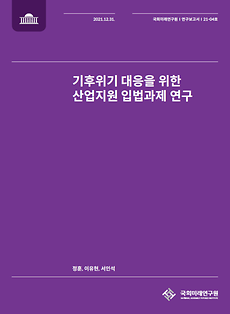
As climate change accelerates, the world has been pushing for Carbon Neutrality. Thus far, over 130 countries have declared their intent to eventually achieve Carbon Neutrality, and the developed countries, including the EU, have been reorganizing their climate change policies and laws from a long-term perspective with the goal of achieving carbon neutrality and sustainable development. Korea has also joined this effort, declaring its intent to achieve carbon neutrality in Oct. 2020, and has been preparing to reorganize its climate change policies and laws.
Furthermore, these global movements to respond to climate change request industries to take environmental and social responsibilities. ESG (Environmental, Social, and Corporate Governance) and RE100 are corporate initiatives that are spreading worldwide, and the European parliament has proposed the introduction of the Carbon Border Adjustment Mechanism (CBAM) to prevent carbon leakage and secure a level playing field for EU producers. As Korea, which is highly dependent on exports, can be particularly affected by the introduction of such a system, it is necessary to prepare response strategies.
From this point of view, the National Assembly Futures Institute (NAFI) has sought the direction for improving the domestic legal system and policies to enable an effective response to climate change. To this end, we investigated the problems of existing domestic climate change legislation and policies. We compared and analyzed domestic and foreign climate change legislation and policy trends through literature research and a Semantic Network Analysis (SNA). A Delphi survey of 25 climate change experts was also conducted.
Based on our analysis of domestic and foreign policies and laws and the results of the Delphi survey, a direction for improving Korean legislation to the level of advanced countries and policy measures for industrial support were presented.